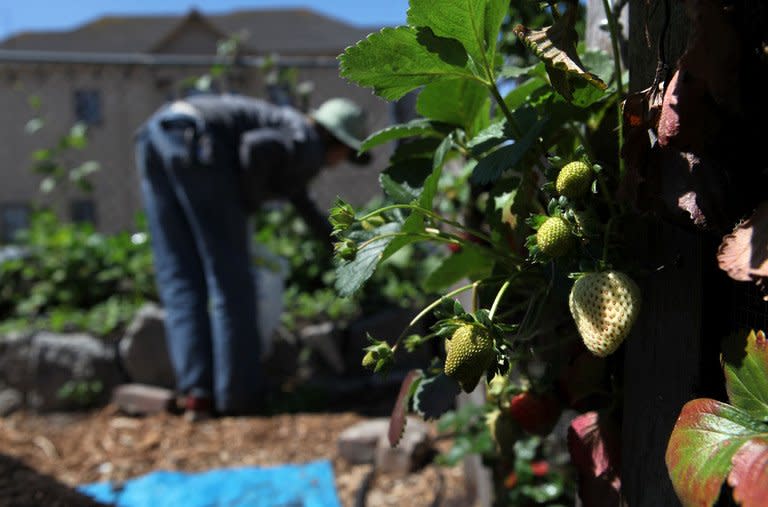Trouble on the US farm: crops rot, growers seek workers
Here's a mess with no easy fix: American crops going unpicked -- it's backbreaking work Americans won't touch -- and poor migrants in need of work shying from it for fear of being abused. Creating a program for temporary farm workers from Mexico and other countries to work the land, sow seeds or reap harvests is one of the touchiest aspects of the immigration reform that Congress is working on. Some 61 percent of growers in California report shortages of laborers, especially in labor intensive crops like grapes and vegetables, said Rayne Pegg of the California Farm Bureau Federation. So some crops are left to rot. In the peak of the harvest season, California needs some 400,000 farmhands, and usually 70 percent of them are undocumented immigrants, Pegg said. At the national level, half of the million workers that put fruit and vegetables on the tables of American families lack work papers, says FAIR, the Federation for American Immigration Reform. "We do rely on a foreign workforce. We really have an issue in terms of attracting domestic workers. They typically don't want to work in agriculture. It's out in the elements, it can be a hard job," said Pegg. She added: "Our concern is, what will happen over the long term if we continue to see this labor supply shortage and there's nothing done on immigration reform. Where will our labor supply come from?" Wendy Moore, who grows wine grapes in Lodi, northeast of San Francisco, said a shortage of workers meant a delayed harvest and thus grapes with a higher sugar content, which is not good for wineries. So what's the problem? Workers are scarce because deportations are on the rise and laws in some states are tough on undocumented foreigners. Thus, immigrants are wary of moving around like they used to, in search of seasonal farm work. Secondly, fewer Mexicans are coming across because of tighter security at the border, said Pegg. What is more, as the estimated 11 million immigrants living illegally in the United States improve their standard of living, crouching down for hours on end to pick lettuce or strawberries under a punishing sun is no longer a must for them in order to get by. For all these reasons, American growers want a visa program that will allow foreigners to come in and work the land, then go back home, Pegg said. A similar plan does exist. But it is so expensive and so thick with red tape that growers prefer to cut corners and opt to contract undocumented workers. Transferring this visa into an efficient program seems to be the ideal solution for growers and for ensuring food supplies in the US. But the devil is in the details. Mexican laborers at the California Mushroom Farm, for instance, fear that with a plan like that, new arrivals will cause them to lose benefits they have earned over the years, such as health insurance and paid vacations. In Oxnard, 100 kilometers (60 miles) northwest of Los Angeles, Mexican worker Reinaldo Arevalo, 61 and with bushy mustach, said a program for temporary workers would not help people like him at all. Arevalo and fellow Mexican co-worker Alfredo Zamora had just arrived at the offices of the United Farm Workers union, where they are members, from the mushroom farm. Along the highway are vast fields of strawberries and raspberries. All one can see of the pickers are their bent-over backs. "The people who are here do not demand things, because they want to work," Arevalo said, referring to undocumented immigrants. "And the people that come from outside in the future are not going to demand things either, because they want to work. So who is going to suffer? We are, the stable workers." "The one coming in is not going to fight for what we have," added Zamora, who is 53. They say the solution is to legalize the undocumented workers who are already in the country working, often earning less than than the minimum wage of eight dollars an hour and exposed to abuse and sexual harassment because of their legal status. In 1942 the federal government implemented a program that until 1964 filled American farm fields with tens of thousands of Mexicans, who were totally at the mercy of foremen. "With growers in charge, guestworkers' model contracts often proved meaningless because employers had the power to repatriate workers who tried to enforce them. Workers who complained, went on strike, or sought a lawyer could be deported and replaced," wrote Cindy Hahamovitch, author of a book entitled "No Man's Land", in a piece in the Miami Herald.



